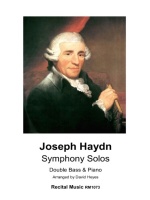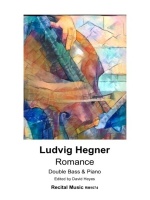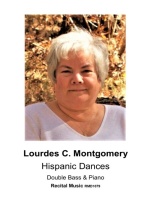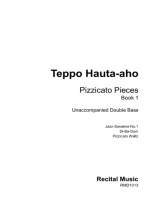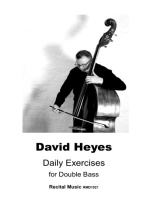Your basket is currently empty!
Composer Portraits
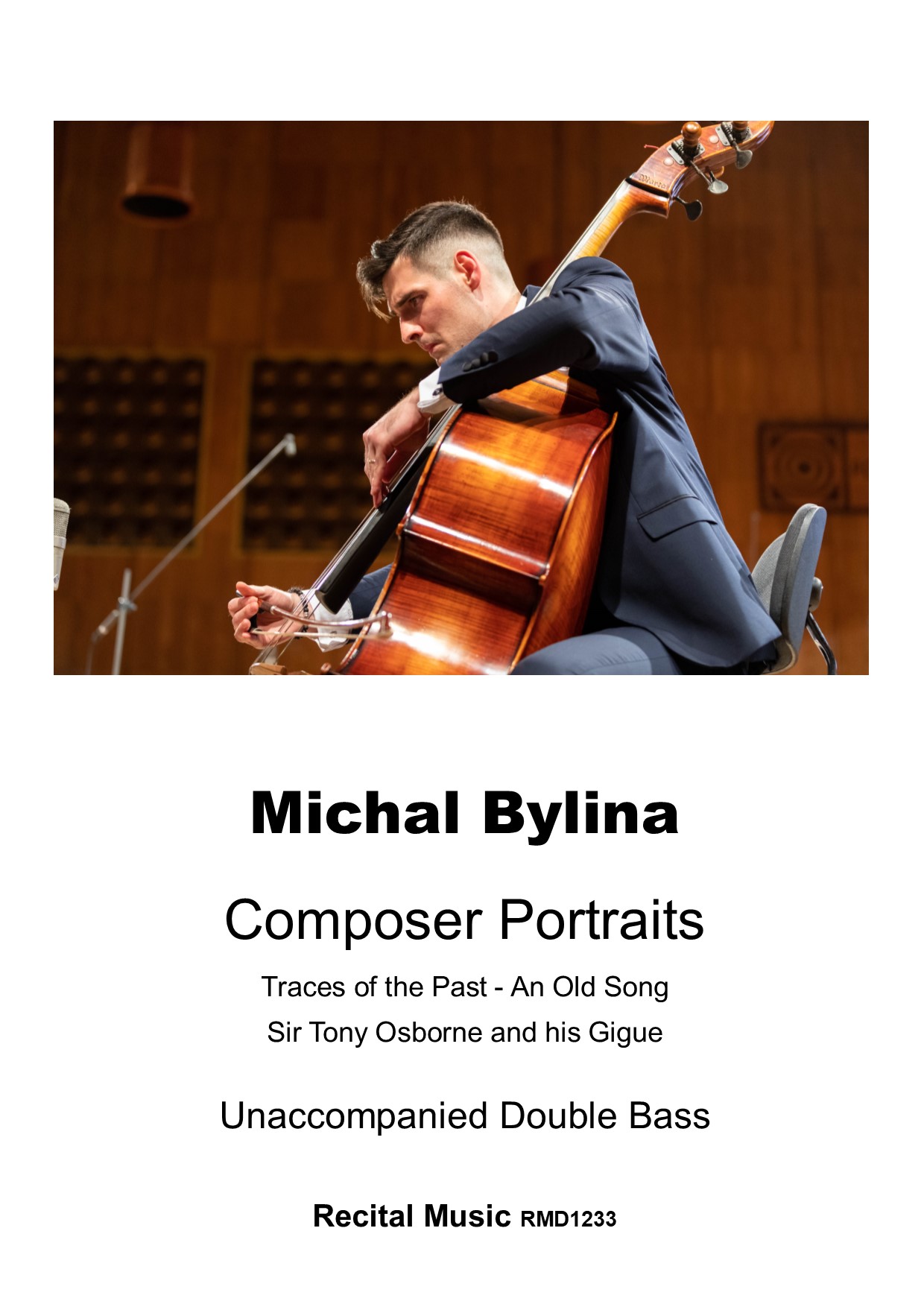
Description
Traces of the Past is a colourful, inventive and accessible suite of three pieces, each written to celebrate a significant by a double bass composer, …offering effective solo, Repertoire which offers musical and technical challenges in equal measure.
1. Traces of the Past: The origins of this particular piece are interesting as it might never have been written. David Heyes asked me to write a composition for Armand Russell, to celebrate his 85th birthday in 2017. I obviously accepted and promised to compose something, because I am always very excited to create new music for the double bass. To my surprise, it was ready after only three hours and it has turned out to be one of my favourite pieces I’ve composed to date.
‘Traces of the Past’ is written entirely in harmonics. Originally, its first pitches had to be: a a d e (the letters from Armand Russell’s name), but when I wrote them down I realised these could be harmonics in the upper register of the instrument. Then an idea came to my mind to create a piece that uses only harmonics and I think it works very well. Meditative, sonorous and attractive – these are the three words that could describe my feelings about ‘Traces of the Past’.
Traces of the Past was premiered on Sunday 23 April 2017 at the Silk Mill (Frome, Somerset) by Alexander Heather (double bass).
2. An Old Song: When I started to think about what I am going to compose for Basses Galore an idea came into my mind – to make use of the letters from composers’ name that can be transformed into pitches. And this is how the two compositions were born. Therefore, the main melody of the one for John Alexander starts with: h a e a d e. The title is “An Old Song” as it sounds quite modal and reflects old, medieval times from somewhere in Western Europe. Maybe England?”
An Old Song was premiered on Sunday 23 April 2017 at the Silk Mill (Frome, Somerset) by Eloise Riddell (double bass).
3. Sir Tony Osborne and his Gigue: I am definitely not the kind of composer who wants to break with tradition at all. Therefore, I decided to mix the new and the old. This is how my first atonal piece was born – „Sir Tony Osborne and his Gigue”. It is a very lively, rhythmical composition for double bass solo and is my first in the non- classical style, although is in form of gigue. Its main theme, as in the composition for John Alexander, starts with pitches hidden in Tony’s full name (Anthony Osborne) and they are: a h b e.”
Sir Tony Osborne and his Gigue was premiered on Sunday 23 April 2017 at the Silk Mill (Frome, Somerset) by Thea Sayer (double bass).
R.R.P £8
Our Price £6.8
